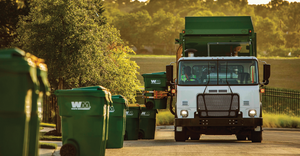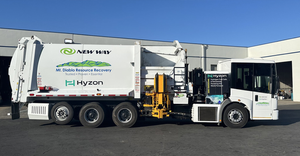Report: "Communities on the Frontlines of the Global Plastic Crisis"
Here are some of the key findings from the report titled "Discarded: Communities on the Frontlines of the Global Plastic Crisis."
A new report from the Global Alliance for Incinerator Alternatives takes a look at how countries in Southeast Asia are struggling to manage higher volumes of plastic waste as a result of China's ban on imports of mixed recyclable plastics.
Key findings of the report, "Discarded: Communities on the Frontlines of the Global Plastic Crisis," include:
The impacts of the shift in plastic trade to Southeast Asian countries has been staggering—contaminated water supplies, crop death, respiratory illness from exposure to burning plastic and the rise of organized crime abound in areas most exposed to the flood of new imports, according to the report.
The report also notes that despite well-meaning efforts to recycle, consumers and municipal waste managers do not know where their recycling is going, or if it is being recycled at all. “These transparency issues and lack of an international regime governing the trade in plastic waste is leaving waste pickers at the bottom of the ladder to deal with the environmental pollution and health risks of consumers on the other side of the world.”
The amount of plastic collected for recycling, without having China to ship to, is causing a problem for exporting countries. Recyclables are being dumped in landfills, incinerated or are piling up in ports.
About the Author
You May Also Like


